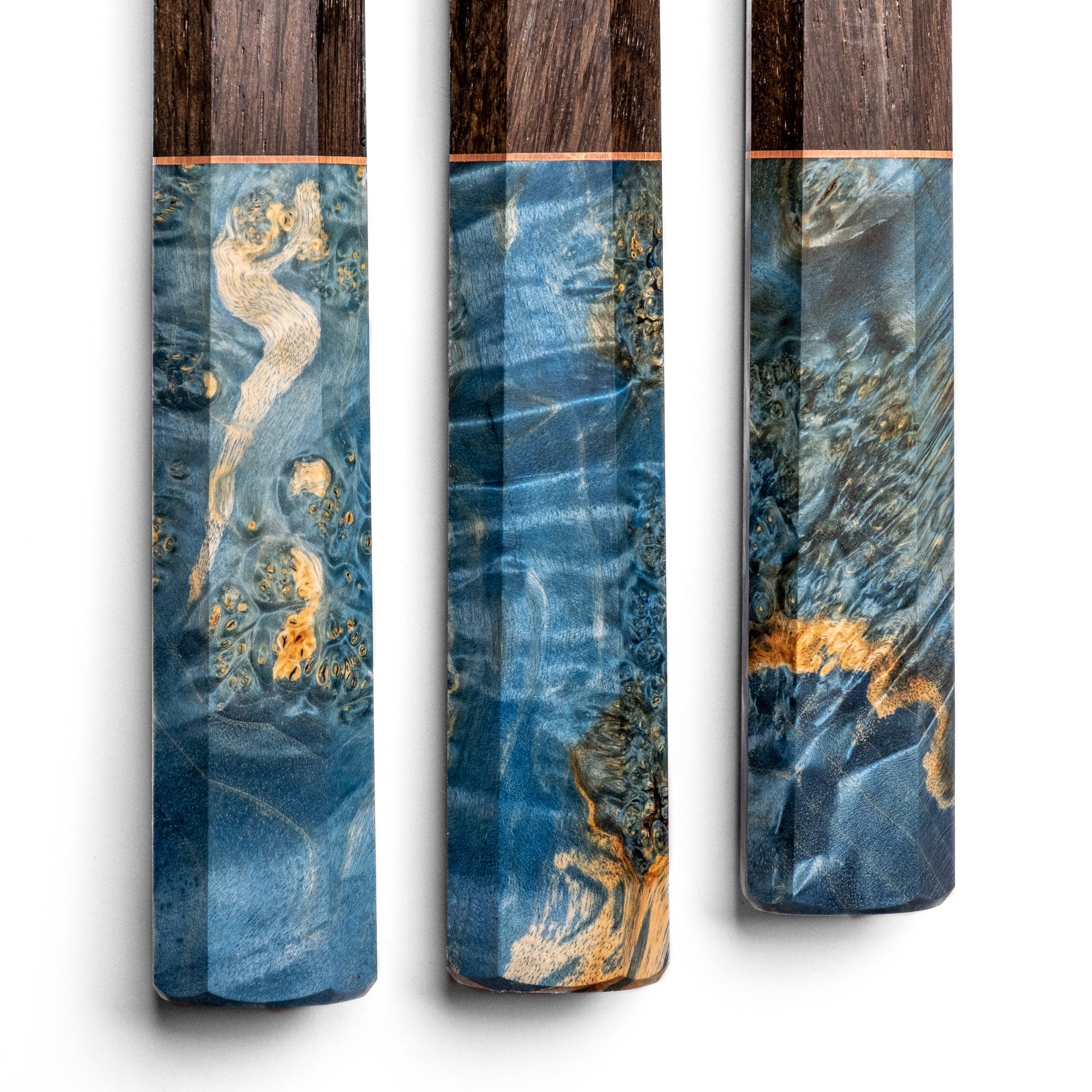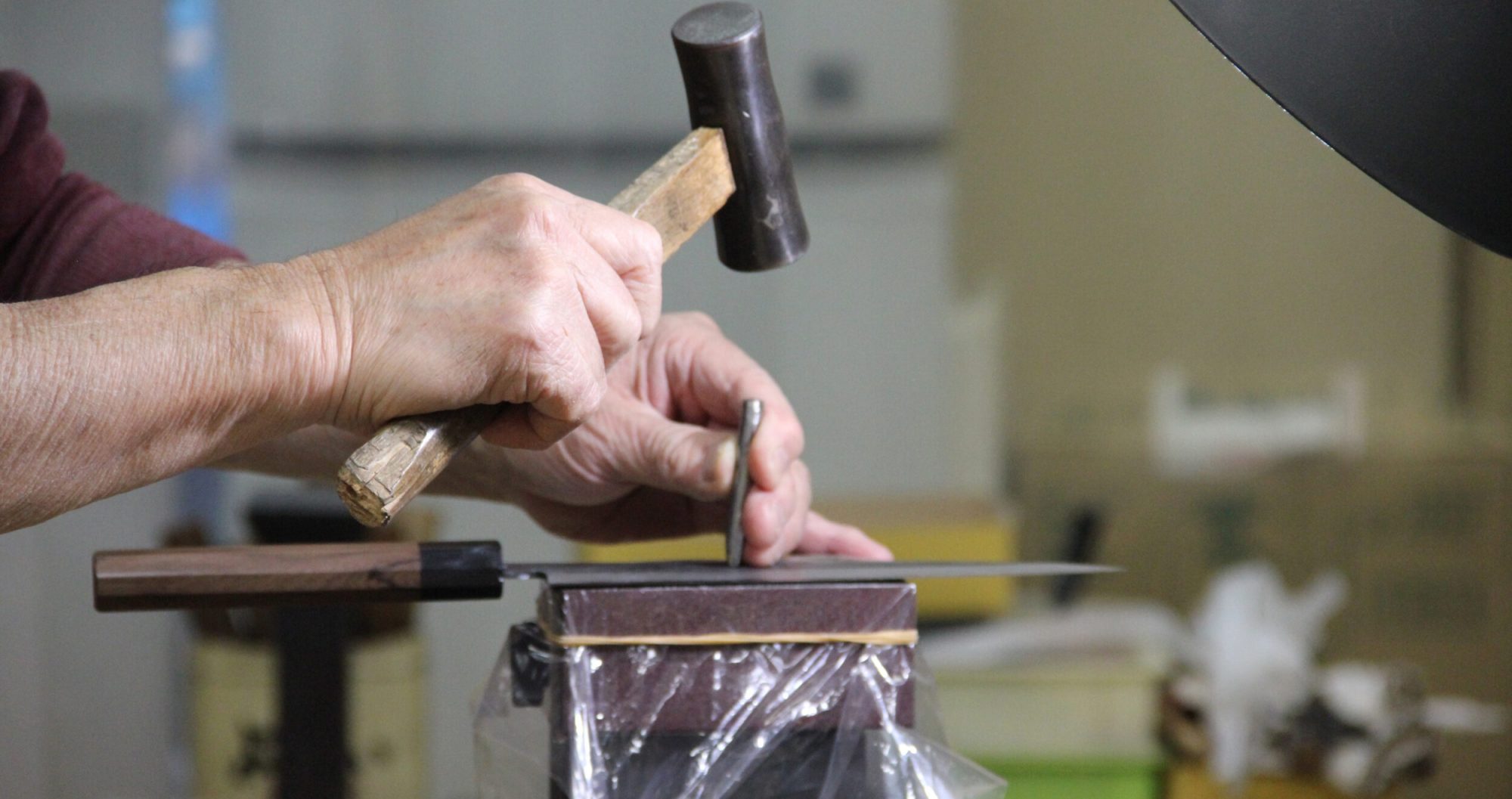Your Ultimate Japanese Pairing Knife: The Petty
Sometimes called a utility knife, a Petty knife is a smaller version of Chef’s knife but is bigger than a paring knife. Thanks to its blade size, the Petty fits in small places that require more dexterity than bigger Chef’s knives while handling bigger jobs than a paring knife can take care of. Its incomparable sharpness is used for smaller precision tasks such as peeling, trimming, and slicing small fruits and vegetables. As well as for handling bigger tasks acting as a small versatile Chefs knife.
It is an ideal alternative to Gyuto and Santoku for people with smaller hands. Its 45 degree angled double bevel makes it perfect for both left and right-handed use. Our Sakai Kyuba 16cm Petty will make food preparation more efficient and enjoyable. A knife as unique and everlasting as the memories you will create using it.


The Blade: Sharpness, Versatility and Tradition
The blade in is designed to make cooking more enjoyable as cutting through produce will become an effortless task.
The blade is handcrafted by skilled Japanese blacksmiths in Sakai, Japan with premium Japanese AUS10 stainless steel.
It is a stainless steel with a high carbon content, making it harder than most stainless steel types. You get the hardness of a carbon steel but the corrosion resistance of stainless. Hence, AUS10 steel offers an excellent balance between toughness, durability, and a razor sharpness.
The blade has a Rockwell Hardness rating (HRC) of 62 which means the edge stays noticeably sharper for a longer time. This means you won’t have to worry about sharpening them often. It is forged with 46 layers of Damascus steel which is legendary for its plasticity, hardness and distinctive patterns. The blade will allow foods to be easily and promptly cut with precision.
No Handle Pattern
Is The Same
Is The Same
The beautiful handle is made with extremely limited European maple burl dyed in an Natural Brown colour and feature a subtle copper ring under the oak bog wood kakumaki (collar of the handle). The wood has to be dried for two years before it undergoes the process of stabilisation. This ensures the wood is completely waterproof to avoid bacteria growth and is able to last generations.
The blade’s kakumaki (collar) is made with oak bog wood. A wood ranging from 2,500 to 5,000 years in age. Its age and living conditions give it a unique character and rich natural colour variation determined by its age. Giving you a knife with a rich history.
The stabilised premium-cut maple burl is shaped into an octagonal shaped ambidextrous handle to give you a firm grip on the knife. Not only are the handles aesthetically pleasing, they are also perfectly balanced, light and comfortable. This allows for maximum precision and more controlled movements during use.
No two handle colours or patterns are ever the same as the natural properties of each wood block are unique and will absorb the colour dye differently. This will give each knife a beautiful unique look and it can serve as an unforgettable.

Because Presentation And Packaging Matter Just As Much

All Sakai Kyuba kitchen knives come in a handcrafted, minimalist European Oak wooden box with a delicate waxed finish. The box is wrapped in a Oishya signature illustration strip featuring the Onna Bugeisha – Japanese female warriors.
Inside, you’ll see a beautiful note with a genuine 5 Japanese yen coin for luck. There’s an ancient superstition that giving someone a knife is bad luck because it cuts the relationship between the giver and the recipient. The way around this is to attach a coin of symbolic value to the knife, which is then returned to the giver as a form of payment. As we want you to maintain your relationships with your loved ones, here is a 5 yen coin.
The Japanese for five yen go en (五円) is a homophone with go-en (御縁), which means relationship, connection and bond. So by exchanging this coin with the receiver you no longer have to worry about this superstition.
















































